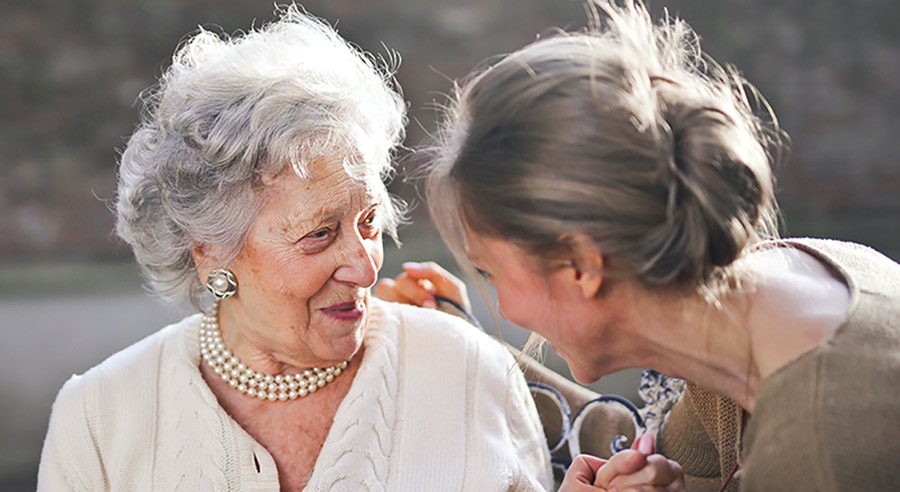The Role of Home Care Providers in Australia in Sustaining NDIS Plan Managers and Caregivers
The Role of Home Care Providers in Australia in Sustaining NDIS Plan Managers and Caregivers
Blog Article
Just How In Home Care Givers Address the Distinct Challenges and Psychological Demands of Households Looking For Support for Their Relatives
At home caregivers play a critical duty in navigating the complexities dealt with by households seeking assistance for their liked ones. By comprehending distinct family characteristics and giving tailored emotional support, these experts not just address prompt care demands but additionally promote an environment of depend on and open communication. This strategy is essential in taking care of the psychological pressure often experienced by family members, as it recognizes their worries and validates their experiences. The nuances of this relationship prolong beyond plain caregiving; the ramifications for household wellness and caregiving efficiency warrant even more exploration.
Recognizing Household Characteristics
Understanding family characteristics is crucial for offering reliable at home treatment, as each family members operates within a distinct set of connections and communications. These characteristics incorporate different aspects, consisting of communication designs, functions, and power structures that influence just how treatment is provided and received. The caregiver should identify these aspects to ensure that treatment plans straighten with the family's worths and expectations.
Various families may show distinct patterns of communication, such as collective approaches or ordered structures. In some households, a primary decision-maker might hold significant influence, while in others, decisions may be extra democratic. Understanding these patterns aids caretakers tailor their strategies to fit the family's details requirements.
In addition, cultural histories play a crucial role in forming family characteristics. Caregivers must be culturally experienced, acknowledging and respecting varied practices and beliefs that may affect treatment preferences.
Ultimately, an extensive understanding of household characteristics helps with enhanced interaction, cultivates trust, and enhances the caregiver's ability to support the household efficiently. By identifying the complex internet of relationships and duties, caretakers can develop a helpful atmosphere that advertises health for both the private receiving care and the household as a whole.
Providing Emotional Assistance
Providing psychological support is an important element of at home treatment that substantially improves the wellness of both the individual receiving care and their family participants. In the context of caregiving, psychological assistance involves active listening, empathy, and recognition of feelings. Caretakers are trained to acknowledge the psychological battles that families deal with, such as seclusion, sense of guilt, and stress and anxiety, and to give a compassionate visibility that alleviates these problems.
By promoting open interaction, caretakers create a risk-free room for relative to reveal their fears and issues. This discussion not just encourages emotional launch however also reinforces count on between the household and the caretaker. In addition, caregivers can supply functional approaches to aid families manage anxiety and promote durability.

Eventually, the emotional assistance offered by at home caregivers enhances the high quality of life for both clients and their families, advertising a more caring and understanding caregiving setting. This all natural technique guarantees that psychological requirements are dealt with together with physical wellness factors to consider.
Taking Care Of Daily Care Tasks
Handling daily care jobs is a crucial facet of at home care that guarantees people get the support they need to preserve their wellness and self-reliance. Caretakers play an important role in assisting with tasks of everyday living (ADLs), that include bathing, clothing, brushing, and meal preparation. By taking on these duties, caregivers help relieve the physical and emotional burdens that family members might encounter while taking care of their liked ones.
In addition to personal care, caretakers are likewise tasked with medication monitoring, guaranteeing that customers abide by prescribed does and timetables. This oversight is critical for keeping health and preventing adverse impacts from missed or incorrect medicines. Caretakers frequently help with movement, providing assistance for clients moving around their homes, thereby decreasing the threat of drops and boosting total security.

Fostering Open Communication
Effective management of daily treatment jobs commonly pivots on the high quality of communication in between caregivers, customers, and their family members. Open communication promotes an environment where problems, choices, and comments can be freely exchanged, making certain that care is customized to meet private needs. Caretakers ought to prioritize normal check-ins with both clients and their households, assisting in conversations that deal with any kind of issues or modifications in care needs.
Utilizing different interaction approaches-- such as face-to-face conferences, telephone call, and created updates-- can enhance understanding and offer family members with comfort. It's crucial for caregivers to proactively listen, demonstrating empathy and regard for the psychological landscape of click for more info the family. Encouraging concerns from relative can also assist clear up treatment strategies and strengthen the caregiver's dedication to openness.
Additionally, maintaining open lines of communication enables caretakers to acknowledge and respond immediately to any changes in a customer's wellness condition or psychological well-being. This aggressive technique not just reinforces the caregiver-client dynamic yet additionally encourages families to get involved proactively in the care procedure. Ultimately, fostering open communication is important for boosting the quality of in-home treatment and advertising a helpful ambience for all involved.
Structure Trust and Relationships
Count on is the keystone of successful in-home care, as it develops a here are the findings structure for meaningful relationships between caregivers, clients, and their families. Structure this count on needs regular, clear interaction and a real dedication to the wellness of those included. Caretakers have to demonstrate integrity through preparation, adherence to care strategies, and responsiveness to the demands and preferences of customers.
To foster trust fund, caregivers must take part in active listening, ensuring that family members feel heard and comprehended. This entails not just resolving instant concerns yet additionally anticipating future needs, therefore encouraging family members and enhancing their sense of control. Developing connection through shared experiences and respectful interactions can better solidify these relationships.
In addition, caretakers need to be trained to acknowledge and deal with the emotional intricacies dealt with by family members. By revealing compassion and empathy, they can minimize anxieties and unpredictabilities, reinforcing trust fund. Routine updates and check-ins with member of the family can likewise improve openness, enabling them to really feel engaged and notified about their enjoyed one's care.
Ultimately, developing trust fund and nurturing relationships in at home treatment is a collective procedure that significantly influences the quality of treatment provided, promoting an encouraging environment that profits everyone included.
Verdict
By recognizing family dynamics, offering psychological assistance, and cultivating open interaction, caretakers boost the general caregiving experience - in home caregivers. Their ability to manage day-to-day treatment tasks while constructing depend on and solid relationships cultivates a helpful atmosphere for customers and their family members.
Understanding family dynamics is critical for offering reliable in-home care, as each family runs within an unique collection of connections and interactions.Giving psychological support is a necessary part of in-home treatment that significantly enhances the health of both the private getting treatment and their family members. By over at this website taking on these responsibilities, caretakers aid alleviate the physical and emotional concerns that family members might deal with while caring for their loved ones.
Efficient monitoring of day-to-day care jobs frequently hinges on the top quality of interaction between caregivers, clients, and their families - ndis support coordinator.Depend on is the cornerstone of effective at home treatment, as it establishes a structure for significant connections between caretakers, customers, and their families
Report this page